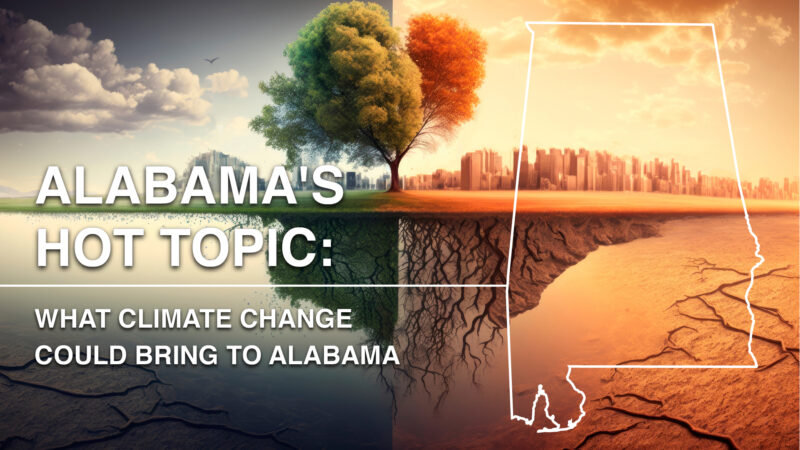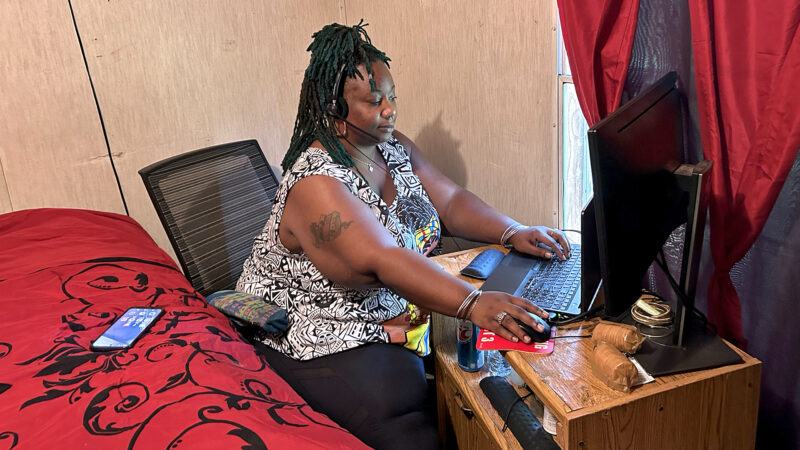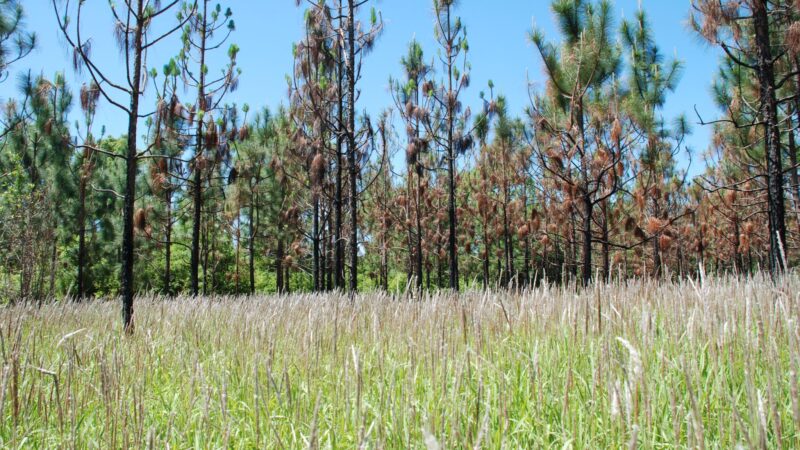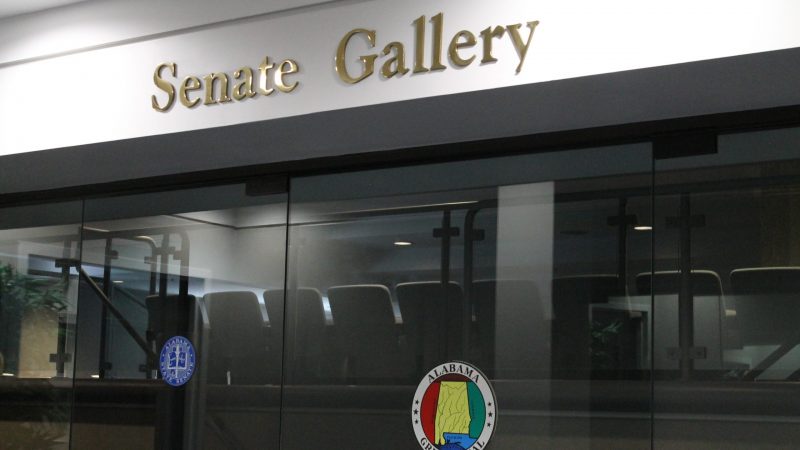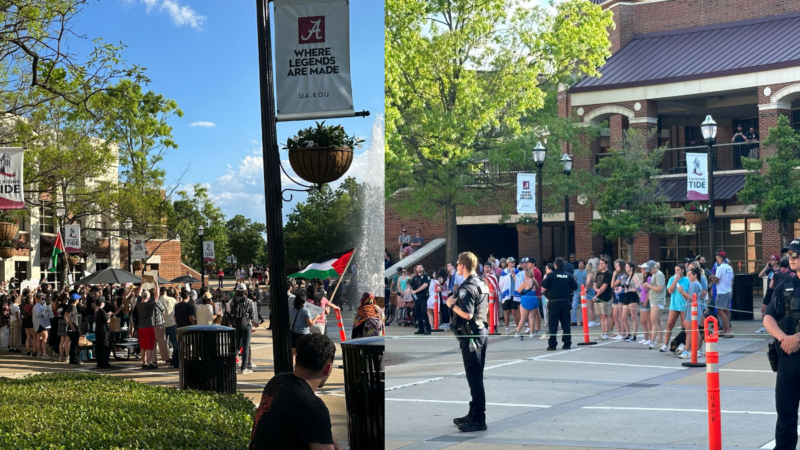From drought to heavy rain, climate change means more of both
This story is part of a series “Alabama’s Hot Topic: What Climate Change Could Bring.” Read additional stories in the series.
Yoruba Butler remembers the night when her cousin Myles Butler got caught in a flash flood in Hoover. It was October 6, 2021. It had been raining for hours.
Yoruba said the waters swept Myles’ vehicle onto a guardrail that was normally several feet above a creek. Perched there precariously, the 23-year-old called his mother, Deidre Butler.
“He called her and did tell her that the car was filling with water,” Yoruba said.
The call then went dead. Through GPS on his phone, Deidre figured out where the call was made, somewhere along Riverchase Parkway West, not far from Hoover High School. She tried calling back, but no answer.
She called hospitals and police departments, looking for any bit of news about Myles. Nothing. She then called Yoruba.
“I told her, ‘Well, let’s just say no news is good news, because there’s nothing we can do right now,’” Yoruba said.
After several excruciatingly difficult hours, the call came, saying a search and rescue team had found Myles’ vehicle. His body was inside.
Hoover Mayor Frank Brocato told the New York Times Myles was driving down a hill and encountered flooding that had swamped the road.
“[He] probably didn’t see there was that much moving water, and it literally swept their vehicle,” Brocato said.
Yoruba said the loss was hard on Myles’ family and friends. She takes solace in memories of Myles.
“It makes me smile just to think about how he was so involved in making sure that everyone was as enthusiastic as he was,” she said.
More, harder, faster
Lauren Casey, a meteorologist with Climate Central, a nonprofit organization that analyzes and reports on climate science, said climate change is making the planet warmer. For every 1 degree the atmospheric temperature rises, the air can hold 4% more water vapor.
That leads to more frequent and intense extreme rain events, when several inches fall in a short amount of time.
“So, it’s going to rain more. It’s going to rain harder and it’s going to rain faster,” said Casey.
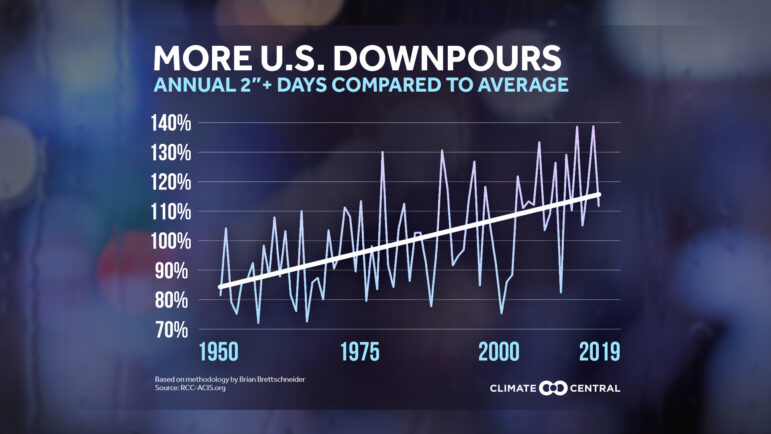
The night of Myles Butler’s death, the National Weather Service reported as much as 13 inches of rain fell in a matter of hours. First responders reported more than 100 water rescues that night.
Several other extreme rain events and the flash floods have occurred in the Birmingham area since then, including at least three in 2022 alone. According to Casey, heavy rains are particularly dangerous in cities, because of development and impervious surfaces like concrete that can create dangerous flows of stormwater.
“So, it really enhances that flash flooding threat in an urban environment,” Casey said.
But to say these big rain events are happening more often around Alabama? That’s tricky. According to Michael Garrison, a hydrologist for the National Weather Service office in Birmingham, the data is hard to come by, mainly because heavy rains are often localized.
“If your rain gauges are scattered, one or two per county, you can easily see how a rain event can be very localized, miss a rain gauge or can hit one rain gauge and miss the entire rest of the county,” Garrison said.
Even where there are localized gauges, they’ve usually only been there a short time. That means data can’t be compared to the historical record.
It’s not controversial, at all
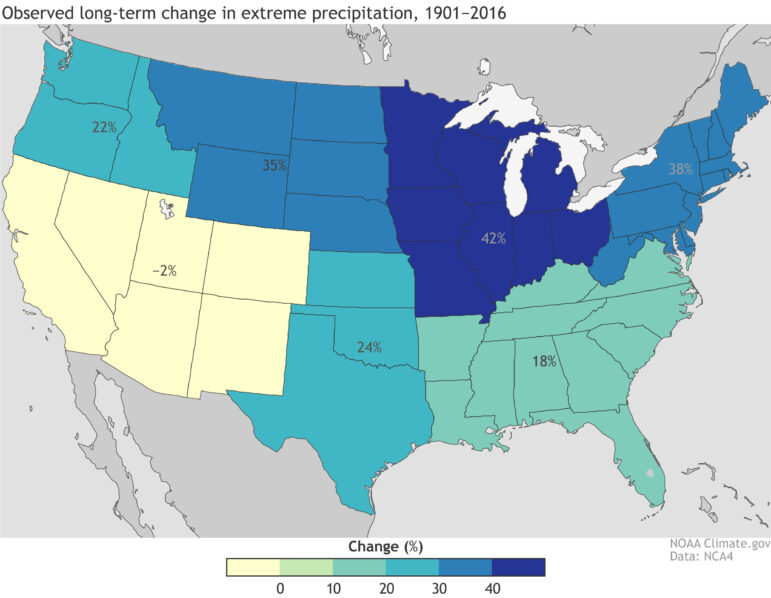
However, there is data on a broader scale. The National Oceanic and Atmospheric Administration (NOAA) shows a nearly 20% increase in extreme precipitation events in the Southeastern U.S. since the beginning of the 20th century.
According to the U.S. Environmental Protection Agency, 9 of the top 10 years for extreme one-day precipitation events in the U.S. have occurred since 1996, and those events are projected to increase significantly over the next several decades.
University of Alabama atmospheric researcher and professor Jason Senkbeil recently completed a study of extreme rain events and found much the same result as NOAA.
“Intense precipitation events … are increasing throughout the southeast. That’s not controversial at all,” Senkbeil said. “This is probably due to climate change and a lot of other scientists came to the same conclusion. Now the total amount of rainfall does not appear to be changing a whole lot, a lot of variability with that. It’s just we’re getting more intense down bursts.”
From one extreme to another
Climate change can also cause wild swings the other way. While most of the eastern U.S. is expected to see slightly more rain, climatologists do predict periods of severe drought. A recent example occurred in 2016. That was one of the driest years on record for Birmingham. The next year was one of the wettest.
A 2022 study published in the journal Nature Climate Change estimates the annual cost of flooding in the U.S. will increase by at least 26% to about $41 billion by 2050. The key factor in that increase is climate change.
Drought, on the other hand, has cost the country at least $249 billion, since 1980, according to NOAA. Only hurricanes were more costly. As with extreme rain events, climate change exacerbates droughts by making them more frequent, longer and more severe.
“One year you’re dealing with excessive rainfall and dealing with flooding concerns,” Casey said. “And then the next year you’re dealing with drought and concerns about the water supply, or agriculture or crops, people’s livelihoods.”
While forecasting the weather is tough enough, Casey said climate change is making it even harder to predict precipitation. That’s a huge concern since we all ultimately depend on the rain.
Q&A: Bobby Carter on leading Tiny Desk, his time at Jackson State, early career advice
Carter, a Jackson State alumnus, took over as the new series host and producer for NPR’s “Tiny Desk Concerts” series in April.
Alabama to begin working with a consulting company that’s under criminal investigation
McKinsey & Company, an international consulting business, will help the state of Alabama develop a new strategic economic growth plan. The company is undertaking that project, while also dealing with a probe into whether it engaged in a criminal conspiracy.
‘Stupidity of politics’: Medicaid expansion effort dies in Mississippi
Mississippi lawmakers couldn’t come together to pass a bill that could have expanded Medicaid for thousands of residents.
This spiky-stemmed invasive grass is taking over Alabama
Classified as one of the worst weeds in the world, cogongrass aggressively crowds out native species and costs Alabama landowners tens of millions of dollars in lost revenue.
Gambling bill in doubt with three days left in the legislative session
Alabama lawmakers are coming down to the finish line for this year’s legislative session. Many bills await passage, but perhaps the biggest one up in the air is a lottery and gambling bill.
Pro-Palestinian demonstration draws counter-protest at University of Alabama
Students gathered demanding the school call for a permanent and immediate ceasefire and to push the school to sever ties with defense contractor Lockheed Martin.
